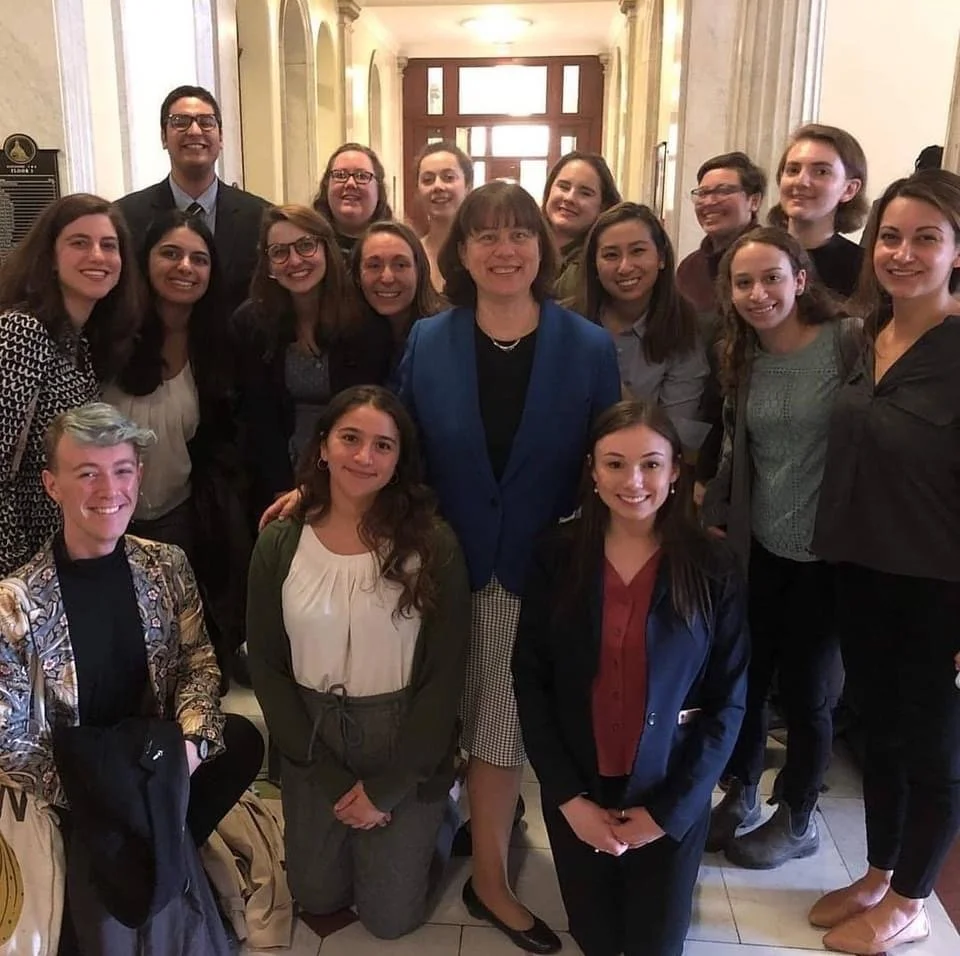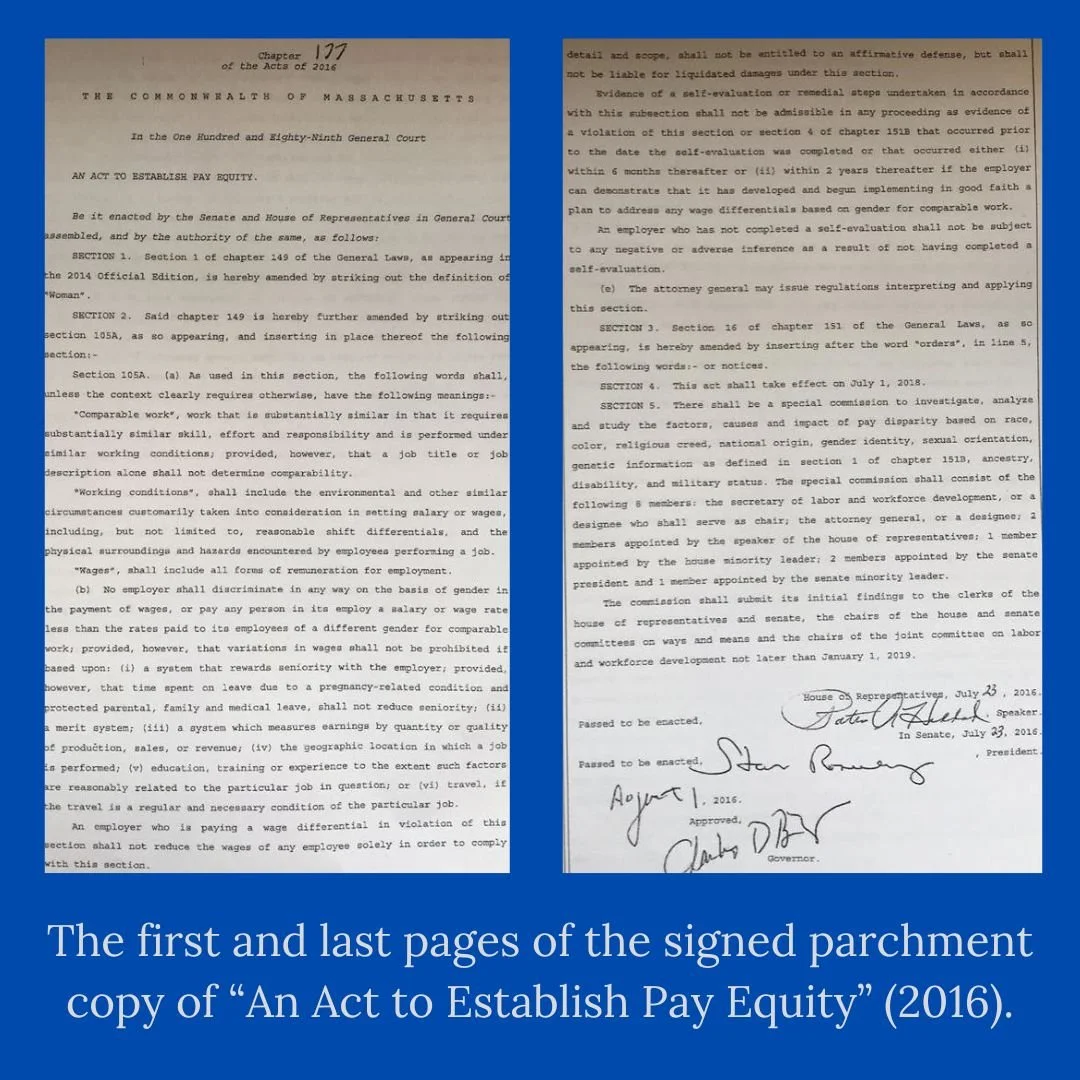Prior Legislative Accomplishments
Women’s Rights History Trail — Passed 2022
This legislation establishes a women’s rights history trail in the Commonwealth, and an advisory commission to recommend appropriate sites. Massachusetts has been home to countless historical moments that have defined our nation—and the same is true in the history of women’s equality. However, we know that history is often told through the lens of men, leaving forgotten women’s contributions to the Commonwealth and the country. Creating a Women’s Rights History Trail would make Massachusetts a leader in correcting this, by honoring the great and diverse women who have contributed to our history through advocating for women’s rights and suffrage. Read the law that creates this Trail here.
Caucus members attended a ceremonial bill signing to commemorate the passage of the women’s rights history trail law.
Ending Child Marriage — Passed 2022
This bill bans marriage under the age of 18 with no exceptions. Child marriage is defined as when one partner in the marriage, often a girl, is under the age of 18. In Massachusetts, approximately 1,200 children as young as 14 were married between 2000 and 2016. Child marriage undermines the girl’s health, education, and economic opportunities, and increases the risk of domestic violence.
Campus Sexual Assault — Passed 2021
This bill provides higher education institutions with the tools and training to prevent sexual misconduct on campuses and the best practices to respond appropriately. The bill provides for due process when an assault is reported, and mandates preventative climate surveys be used at all institutions in Massachusetts. Read “An Act Relative to Sexual Violence on Higher Education Campuses” here.
student advocates with the lead sponsors during an advocacy day supporting the campus sexual assault bill at the State House.
Banning Female Genital Mutilation — Passed 2020
This bill bans the practice of female genital mutilation in Massachusetts. The bill imposes criminal penalties on anyone who knowingly performs FGM on a person under the age of 18, or who transports someone under the age of 18 within the Commonwealth or outside the state for these purposes. FGM is defined by the World Health Organization as the removal of all or part of a girl’s healthy sex organs and surrounding tissue, often resulting in serious health consequences and trauma. There are no health benefits to this practice. According to the Centers for Disease Control, half a million women and girls in the United States have been cut or at risk of FGM. Over 14,000 such women and girls reside in Massachusetts. Read the Massachusetts General Law related to banning female genital mutilation here.
Pregnant Workers Fairness Act—Passed 2017
The new law makes it illegal for employers to not hire a woman because she is pregnant and requires companies to make reasonable accommodations for pregnant employees at their request. A few examples would be access to a lactation room, more frequent or longer breaks, transfer to a less strenuous position, and/or time off to recover after childbirth. Read “An Act Establishing the Massachusetts Pregnant Workers Fairness Act” here.
Commissions on the Status of Women and Girls—Passed 2017
Each new regional commission will be comprised of nine commissioners and will represent a variety of municipalities in their respective territories. The commissions will advocate for women and girls and will report to the Massachusetts Commission on the Status of Women. The passage of this bill ensures every municipality in the Commonwealth is included in a regional commission on the status of women and girls. Read the Massachusetts General Law establishing the Commission here.
Advancing Contraception Coverage and Economic Security in our State (ACCESS)—Passed 2017
Massachusetts is now the first state in the nation to protect and expand access to contraceptives by requiring insurers to cover all FDA-approved contraceptives without cost-sharing. This safeguards the 1.4 million women in Massachusetts who already have access to no-pay birth control. Read “An Act Relative to Advancing Contraceptive Coverage and Economic Security in our State” here.
Pay Equity — Passed 2016
The bill aims to help close the gender wage gap by preventing employers from requiring salary history on job applications, allows employees to discuss wages without fear of termination or retaliation from their employer, further defines comparable work and creates an incentive for businesses to do an internal wage audit. Read “An Act to Establish Pay Equity” here. Learn more about your rights here.


